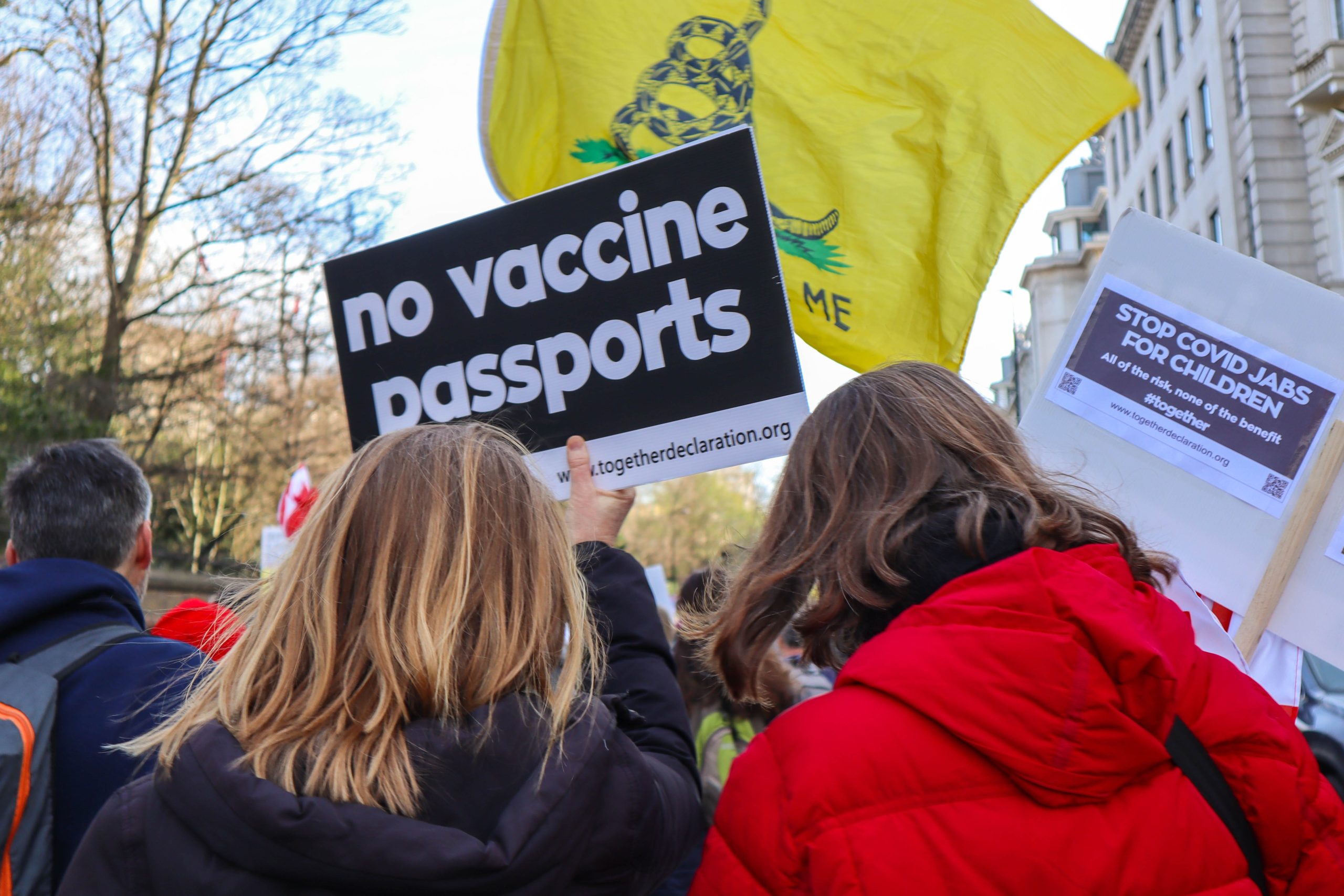
Lauren Dempsey, MS in Biomedicine and Law, RN, FISM News
[elfsight_social_share_buttons id=”1″]
A new study conducted through George Mason University’s Mercatus Center found that indoor vaccine mandates had very little impact on the spread of COVID-19, but had serious negative consequences for businesses.
Researchers analyzed data from multiple cities across the U.S. that implemented vaccine mandates in an effort to force compliance and control the spread of COVID-19. Vaccine mandates were introduced in the spring and summer of 2021 in major U.S. cities like Boston, Chicago, Los Angeles, New Orleans, New York, Philadelphia, San Francisco, Seattle, and Washington D.C., where researchers analyzed data on the effects of such mandates.
The goal was to make vaccination more appealing to those that were hesitant. The strongest supporters of this public health strategy were adamant that restricting the movement of unvaccinated individuals would prevent the spread of COVID-19, increase vaccine uptake, and dramatically reduce hospitalizations and deaths.
Vitor Melo, researcher and author of the new report, said that when the mandates were implemented in the U.S., he expected that they would have slowed the spread of COVID-19 and would have had a positive impact, but their research indicates the opposite.
“Many firms lost businesses because of this,” Melo said. “They lost customers. They weren’t allowed to let customers in if they were not vaccinated, and also they lost staff. The idea at the time was that the benefits would outweigh the cost … but then what I find in the research is that there is not much of a benefit at all.”
“Millions of people were prevented from entering restaurants, bars, gyms, theaters, sports arenas, and other public indoor areas without proof of COVID-19 vaccination” and the federal government announced measures to force employers to mandate vaccination or weekly testing for those that refused. The scientific and political dogma at the time was that although these restrictions would negatively impact the unvaccinated, they would have more benefits for the rest of society.
Supporters of this two-class system were adamant that life should be unpleasant for individuals who chose to remain unvaccinated.
CNN medical contributor Dr. Lenana Wen suggested that remaining unvaccinated should come with consequences, saying “It needs to be hard for people to remain unvaccinated,” going on to say “But at some point these mandates, by workplaces, by schools, I think it will be important to say, ‘Hey, you can opt-out, but if you want to opt-out, you have to sign these forms, you have to get twice weekly testing,’” Wen said. “Basically, we need to make getting vaccinated the easy choice.”
However, it would appear that “indoor mandates had no significant impact” and “if the mandate had any effect at all, it is likely smaller or at least less statistically noticeable than the effects of country-level mandates.”
LOCKDOWNS: INEFFECTIVE AND HARMFUL
While lockdowns had no significant effect on increasing vaccination rates and reducing transmission or COVID-19 mortality, these policies did have many unintended consequences. The report found that Chicago’s stay-at-home order may have led to an increase in domestic violence–related calls to the police, there was an increase in medication non-compliance, lockdowns worsened mental health, and isolation in nursing homes correlated with an increase in overall deaths.
A similar study from Johns Hopkins University found that lockdowns had very little effect on reducing COVID-19 deaths, but had “devastating effects” on society and the economy. This report found that lockdowns reduced COVID-19 deaths by 0.2% and shelter-in-place orders reduced COVID-19 mortality by 2.9%.
The study authors wrote that lockdowns have “contributed to reducing economic activity, raising unemployment, reducing schooling, causing political unrest, contributing to domestic violence, and undermining liberal democracy,” they added that these measures “are ill-founded and should be rejected as a pandemic policy instrument.”
